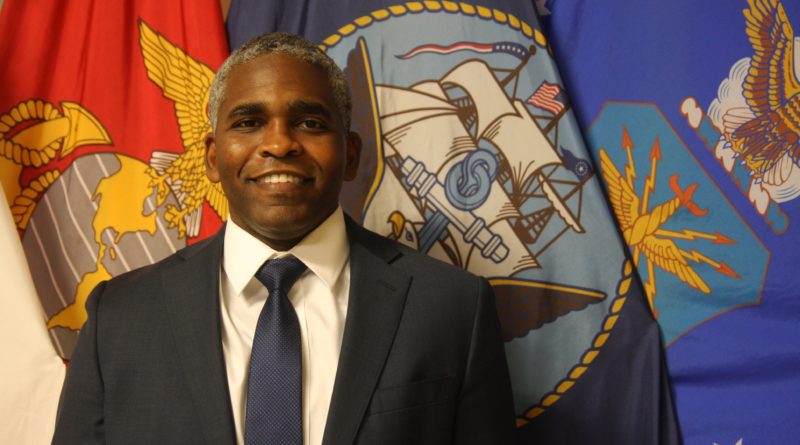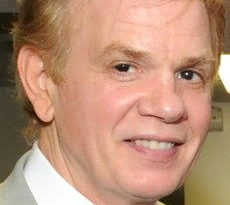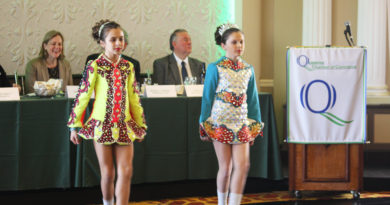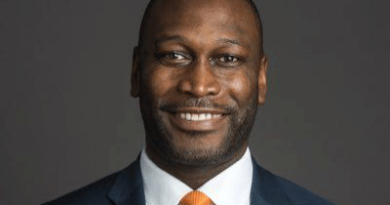Veterans’ services commissioner reflects on his journey
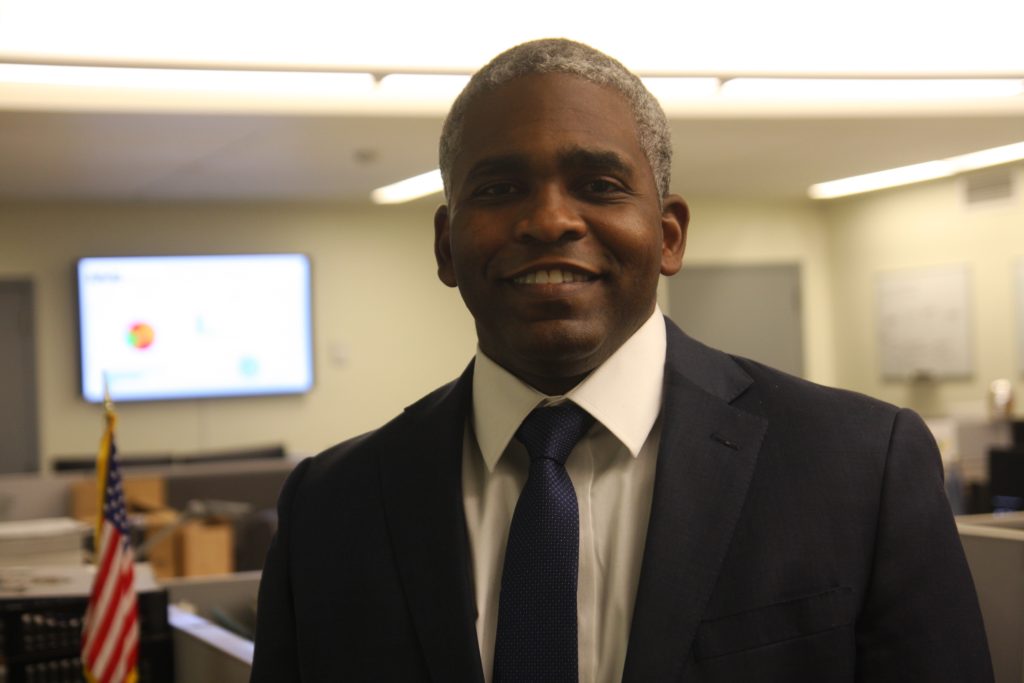
He attended meetings of the chamber’s Energy Committee, for which he now serves as co-chair. Understanding the rich diversity of Queens, Hendon said he learned how both the chamber and other Queens businesses used a demographic approach to outreach that could be applied to his work in city government today.
That translates to reaching out to and communicating with all demographics of veterans, from women and LGBTQ veterans to students, seniors and those still serving.
“I take that model and try my best to mimic it here within this organization,” he said.
Taking lessons from business Years after taking the entrepreneurship class at NYU, Hendon was also asked to run the Veterans Future Lab, the school’s first incubator for veteran entrepreneurs. He maintained that role until he was appointed DVS commissioner.
Today, Hendon serves as a visiting research scientist for the Institute for Invention, Innovation and Entrepreneurship. The unpaid position at NYU is another way for him to “continue to be of value to entrepreneurs in that space.” “I feel like each job kind of prepared me for this one now,” Hendon said. “To go from someone who first worked at a traditional company to then working at a startup then having my own small business.”
At the Veterans Future Lab, different entrepreneurs seeking help approached Hendon with all sorts of challenges.
“I feel like that constant problem solving is something that I carry with me to this new job,” he added. “The same things you look at when you have a startup or a small business, I think that analysis applies here.”
One overlap that Hendon has found between government and the business world is “constant intellectual curiosity.” Running a business, at the end of the day, is “just a science experiment,” he said, with hypotheses, tests and changes.
“That same thing is what we do here in government,” he said, “and I appreciate that.” But a major difference is the “institutional heft and memory” that serving in the government involves. While it is a powerful strength, Hendon said, it also means not being as able to adjust as quickly on the fly. “You’ve got to be mindful that it’s such a huge ship that it won’t be as agile,” he said. “It can’t change in the same way that things can change in a business. “When it was a business, it was just myself and a few people. You can pivot on a dime,” he added. “Whereas here, there are so many mechanisms to go through.”
The upside of that “institutional heft,” Hendon said, is that the impact is much greater. Setting goals In many ways, Hendon noted, DVS itself is like a startup in city government. In just three years, the agency has already built a “strong suite of programs and offerings” to the veteran community, Hendon said. The next phase of their work is making sure people know about them.
“We’ve got such good things cooking here,” he said. “We just had to get it functioning and able to be self-sustaining.”
DVS offers VetConnectNYC, a network that connects service members, veterans and their families to service providers through an online platform. It also runs Service2Service, a program that provides mentorship to veterans looking to work in the public sector. Another project is Pay for Success, a rapid employment initiative targeted specifically at veterans who come from past combat employments.
“We’ve got great services, but we want to make sure now that we’re getting the word out,” Hendon said, “so they can take advantage of what we’ve got.”
One of his biggest goals is the outreach piece, and uplifting the entire veteran community in New York City in terms of social and economic outcomes. “If the veteran community is a bell curve,” he said, “we’re looking to shift that entire bell curve to the right.”
Closing the gaps
As the only agency of its kind in the nation offering services to veterans on a city level, DVS was formed specifically because there were gaps in the offerings made available to veterans at other levels of government. The commissioner said there are three ways DVS closes those gaps, such as introducing veterans to providers who can help them and convening stakeholders to create initiatives organically.
If there’s a gap that is not filled, he said, DVS can step in and play that role. The agency doesn’t just serve veterans, but also caregivers, survivors and family members. Hendon concluded that the agency is open to any offerings, opportunities and comments that people in the community can provide to improve their services to veterans.
Just hiring a veteran, doing business with veteran-owned establishments or spreading the word about DVS helps. “Whatever thoughts or suggestions folks have, things they can offer and bring to the table in support of veterans, let us know,” Hendon said.

